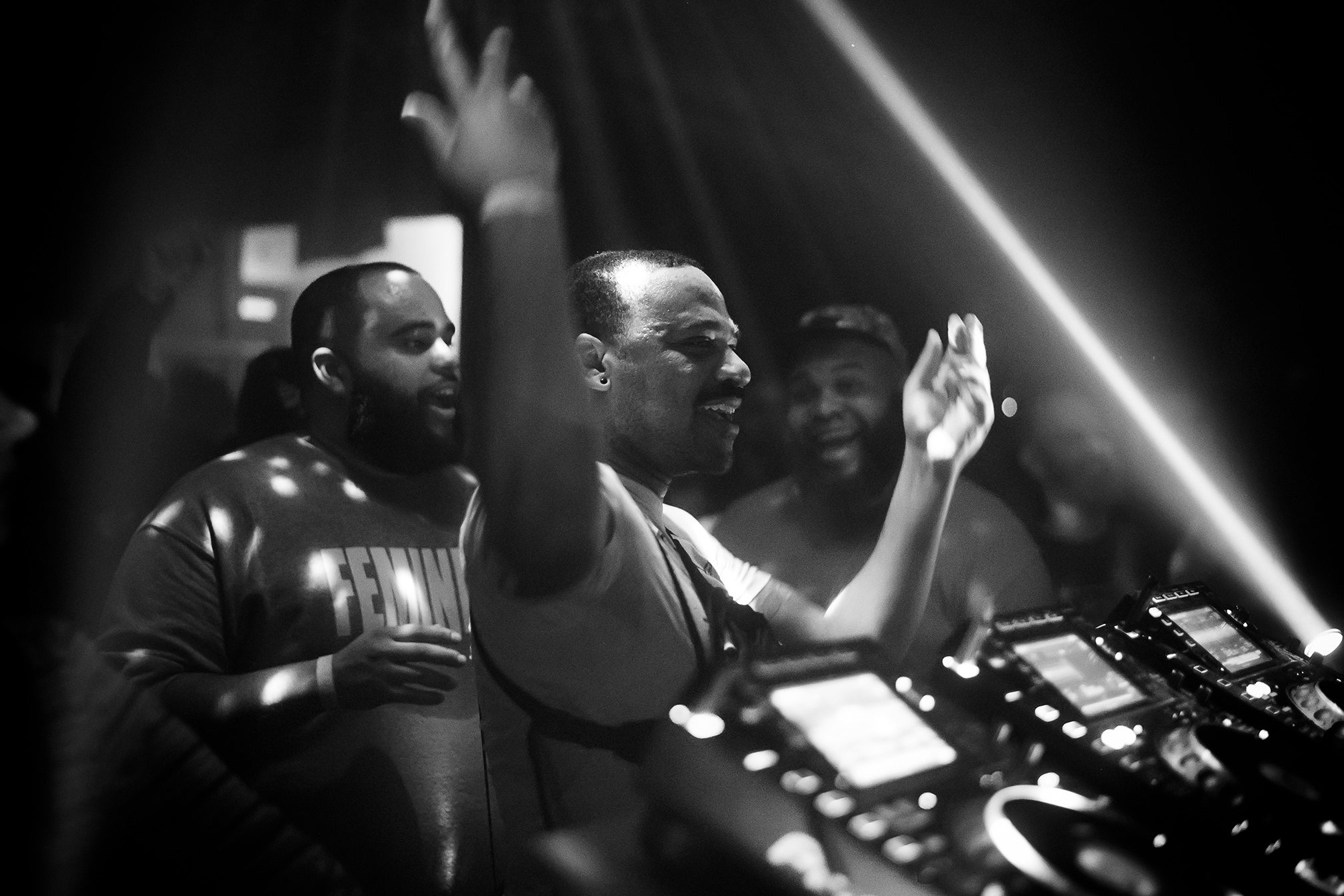 Features
Features
TNX are the party crew making Washington, DC "dance in a different way"
Before the pandemic hit we met The NeedlExchange, the DJ cooperative helping the so-called stiff US capital get loose
You know it's going to be a good night when you're already dancing by 6 PM. It's the final Friday in February and we're happily singing and swaying along to the music echoing throughout a large hall of the Kennedy Center in Washington, DC, where the go-go group Rare Essence is performing their rendition of Ashlee Simpson's 2004 hit 'Pieces of Me' to the devoted audience. Even for someone with no significant prior knowledge of what the regional, conga-heavy funk subgenre entails, the energy between the band and the concert attendees is palpable and infectious, a word that comes up several times throughout Mixmag's conversation with DC's own (by way of Prince George's County, Maryland) Baronhawk Williams aka Baronhawk Poitier.
There are two reasons for the occasion, both of which are immediately enticing to anyone paying attention to the cutting-edge of American underground electronic music. The first is the self-described "DJ cooperative" The NeedlExchange (TNX), of which Baronhawk is a part along with Bil Todd, Tommy Cornelis and DJ Lisa Frank, and the party they are throwing tonight in a secret space with renowned selector CCL, who's become known the world over for their rolling, breaking, otherworldly sets. The second is Baronhawk's debut solo EP, 'Temperado Tornado' ahead of its April release via Honey Soundsystem, that proudly proclaims itself to be "not your ex-boyfriend's Berlin zombie sway dance beats".
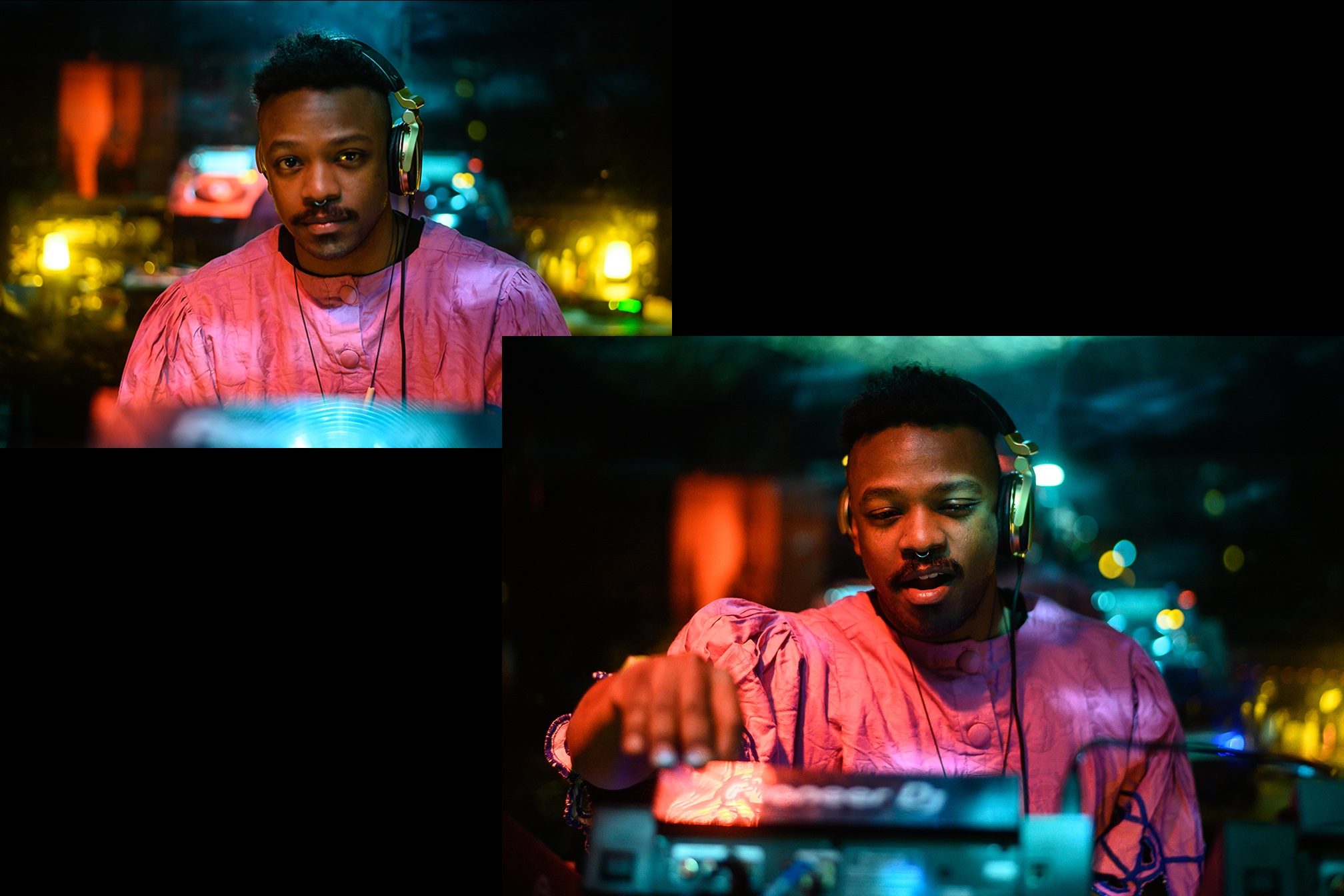
Baronhawk is surely the very antithesis of the zombie sway as we move to the groove of Rare Essence. Clad in a muted royal purple one-piece ski jumpsuit and black Nikes with white accents, he's already run into a friend at the show, to whom he summarily offers a list spot for the party later. It's hard to find places to throw underground, late-night parties at in DC, due to ever-encroaching gentrification and a subsequent lack of warehouse-type locales. To minimize the risk of getting shut down by the cops or disgruntled neighbors, TNX keeps things very hush – event details are largely spread by way of whisper campaigns and friends of friends, flyers are posted in a few discreet places online, no substantial information can be found on Facebook or Resident Advisor.
"Just check your list," Baronhawk told Mixmag at a hotel bar earlier in the evening, before we zipped over to the Kennedy Center on his bright red Vespa scooter ("smutt red", he clarified with a cheeky smirk, "with two Ts"). "Check who's signing up. If you don't recognize the name, if they're clearly not family… Luckily, [the scene is] small enough that you can kinda tell who's who. People check on each other a lot easier, shit gets handled on its own."
It's a small scene, but a vibrant one. DC doesn't get the shine it deserves, perhaps, Baronhawk suggests, due to the stigma of the US capital being seen as stiff and stuffy. While TNX was born from an impetus to fill a specific musical niche, especially within the queer scene ("we were playing gay music but weren't getting booked at gay bars"), the DC crews (like ROAM, SEQUENCE, DMV Deep, Sticky Fingers, Good Buddies, hothouse, and Sleaze, to name a few) frequently throw parties together, host big names from within and outside of the US, and demonstrate an impressive roster of local talent.
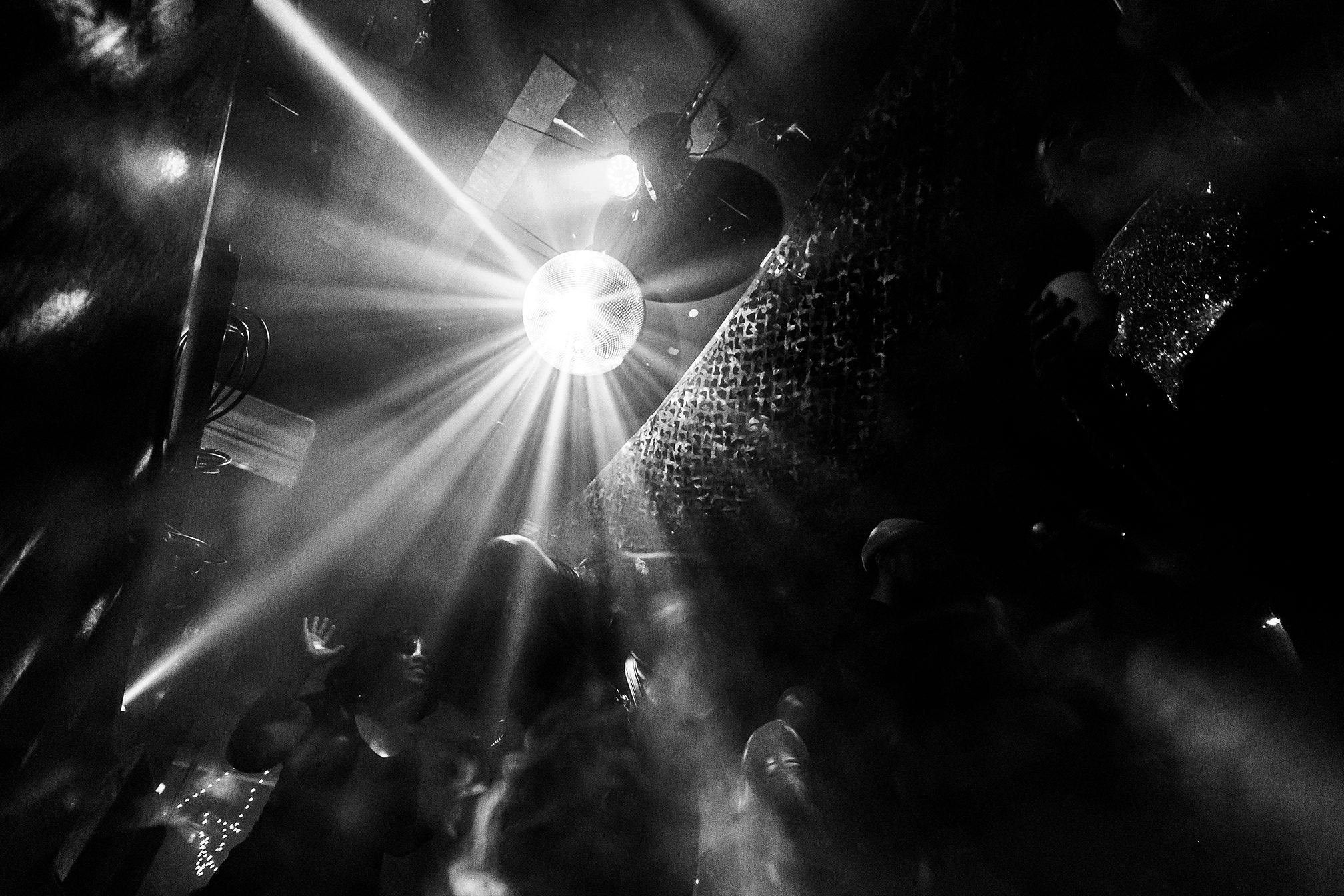
And indeed, when we arrive at the party several hours later, it feels more like someone's intimate living room gathering has been outfitted with a cracking sound system, rather than a full-fledged club environment. Two wide walls of speakers boast an arrangement of tall tea lights, and a canopy of color-changing fairy lights drape down over a few comfy couches to the right. Hanging directly above the dance floor is a soft brown net, which further lends a coziness to the room. The DJs' backs are to a mirrored wall which, together with the lighting, gives a gentle depth to the space, creating an almost cavern-type feel if you're near enough near the booth. Baronhawk and Tommy Cornelis are warming the dancers up with a naturally flowing b2b.
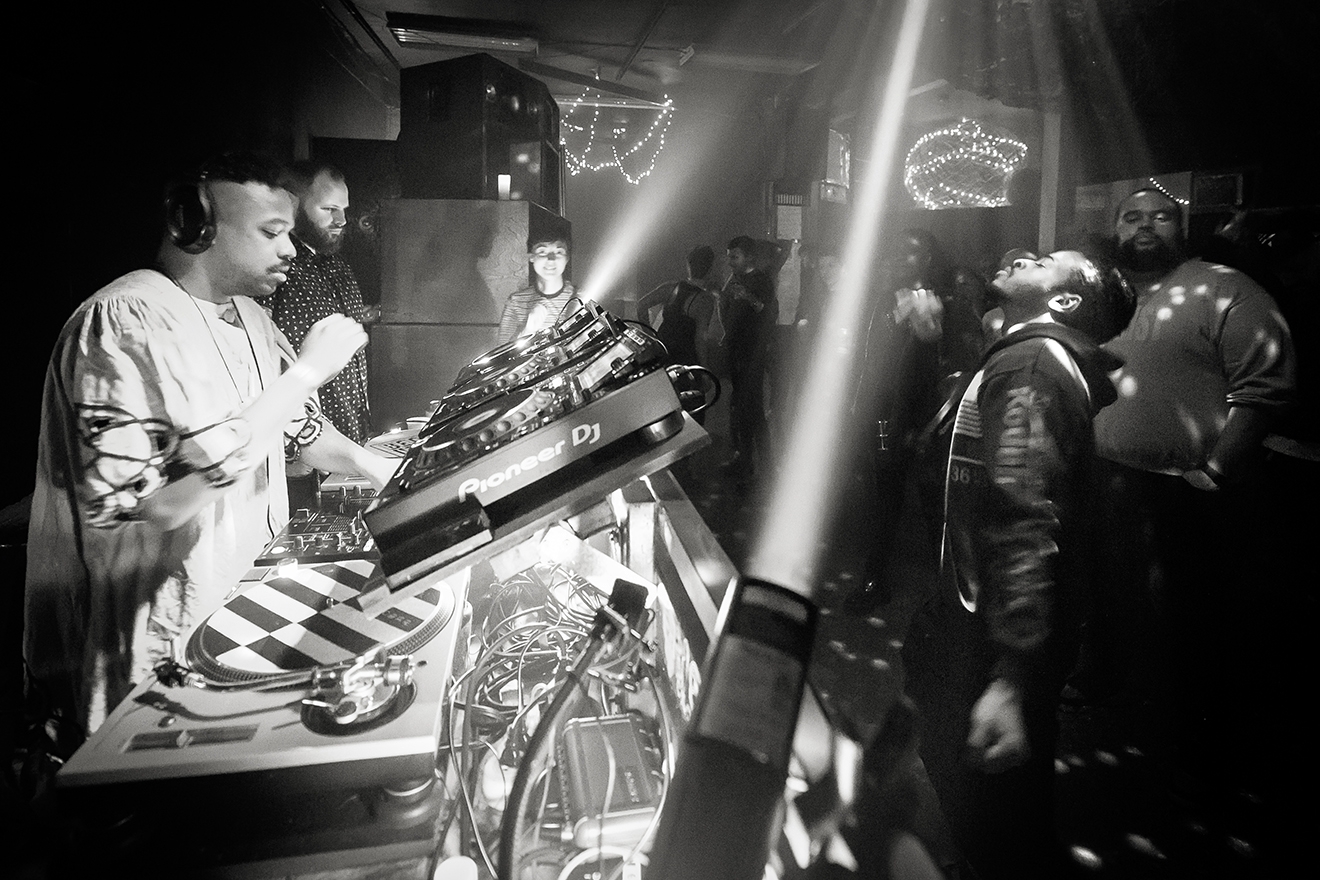
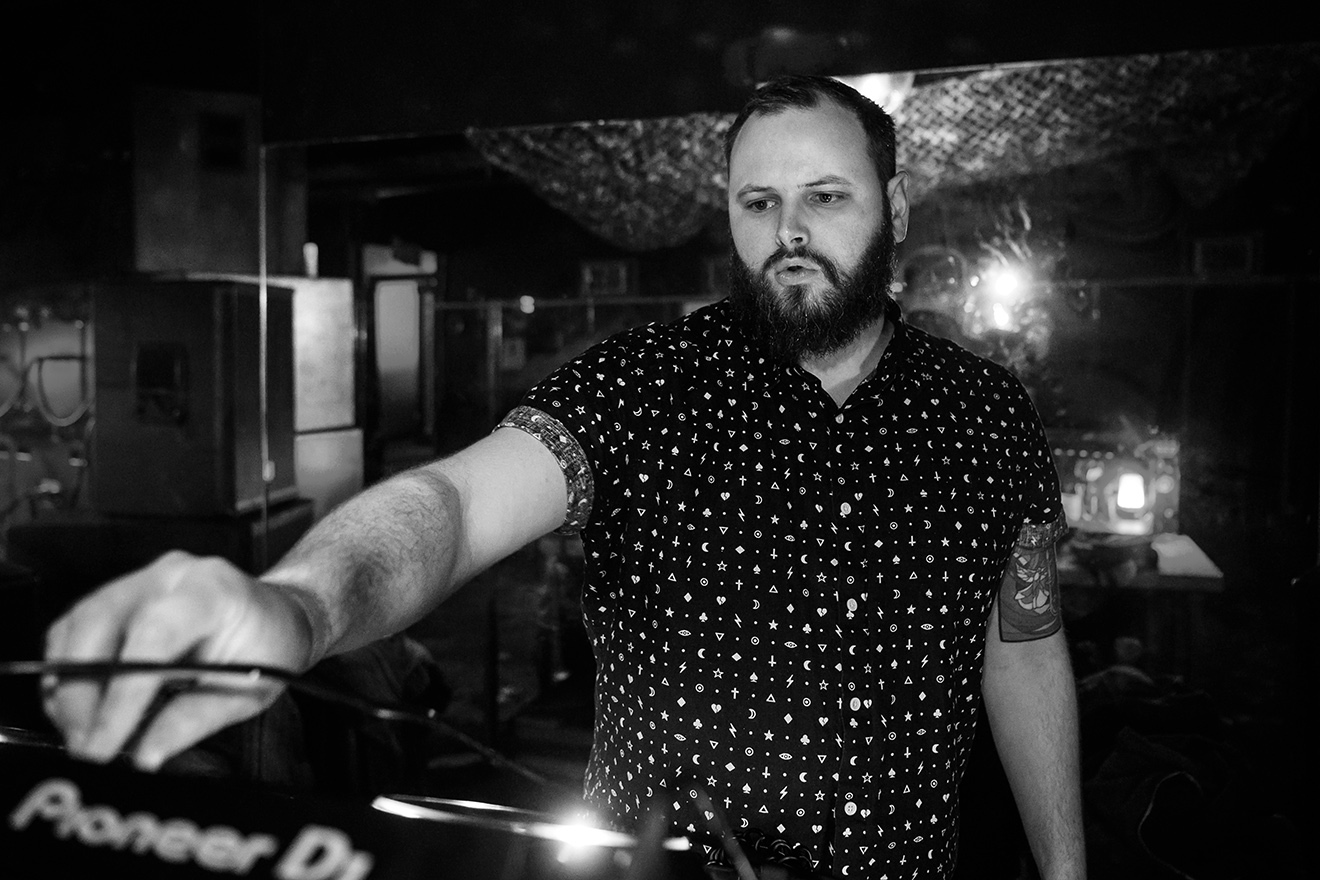
"DC's a jazz city, and it comes out in people's sets, whether they realize it or not," Baronhawk explained earlier. "You can hear [it]... somewhere, somehow, there's some kind of soul mixed in there." Growing up the youngest of seven siblings, Baronhawk was privy to a myriad of musical styles as a kid, which would go on to shape his own music taste: one brother was listening to 90s hip hop, one sister was listening to go-go, another sister was listening to 90s alternative, another was listening to Baltimore club (which he lovingly describes as "another infectious percussive rhythm you just can't deny"), and so on.
In high school, he started dancing with friends who had "seen Beat Street or something" and started practicing in the hallways, and upon graduating, moved to DC and began working with Urban Artistry, a nonprofit dance school "dedicated to the performance and preservation of art forms inspired by the urban experience." He was teaching multiple styles of dance classes, as well as choreographing, cutting music, and DJing for shows, which compelled him to dig for music and eventually start DJing outside of his time at Urban Artistry.
Tonight, he treats the crowd to lots of vocal house, disco bangers, and tracks with elements of live percussion and horns. A standout moment comes in the form of a high-tempo blend of Dr. Buzzard's Original Savannah Band's 1979 tune 'Call Me', with an unforgettable refrain most of the front row passionately sings along to: "boy I swear in all my years, I've not felt like this before / if I choose to sleep with you, don't mistake me for a whore!". "Every ten, fifteen minutes, I'm gonna try to make you dance a different way," Baronhawk had promised at the bar, and he did not disappoint.
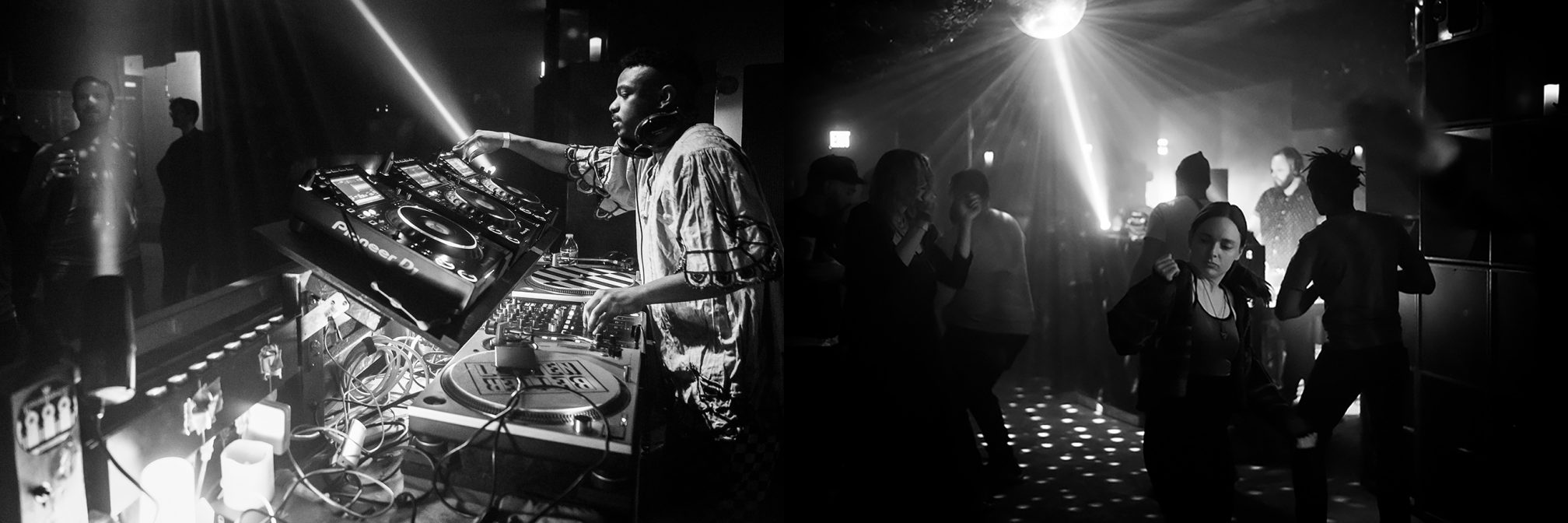
The clock strikes 2 AM and CCL steps up to the decks. It's not an exaggeration to say watching CCL play is a mind-blowing, psychedelically ego-shattering experience. At the beginning of the night, they handle the CDJs in staccato bursts, bubbling with precise energy as they launch us from Zebra Katz and Leikeli47 into a carefree coalescence of heavy drums. Though the dancefloor is packed, everyone has room to move to their heart's content. Almost all of the dancers are really going for it: someone's long-sleeved sequin crop top is reflecting the light off the disco ball as they twirl, another partygoer bobs steadfastly in a black tank top and a tiger-print beret, a cluster of three young people make use of the entire space around them to move fluidly and expressively.
Whether it's the network of friends in attendance, or the wholesome house party vibes that persist throughout the night, everyone is eager to chat in a genuine way. Mixmag hears a brief history on clubbing in DC from a guy who once saw Heather Graham at Nation (a gay and club kid-friendly spot in Navy Yard which closed fourteen years ago) in 1999, tales of filming Baronhawk's 'Temperado Tornado' video late at night at Honcho Campout last summer, and heaps of praise for CCL, whose storied set at the aforementioned festival brought at least one particularly enthusiastic guest out.
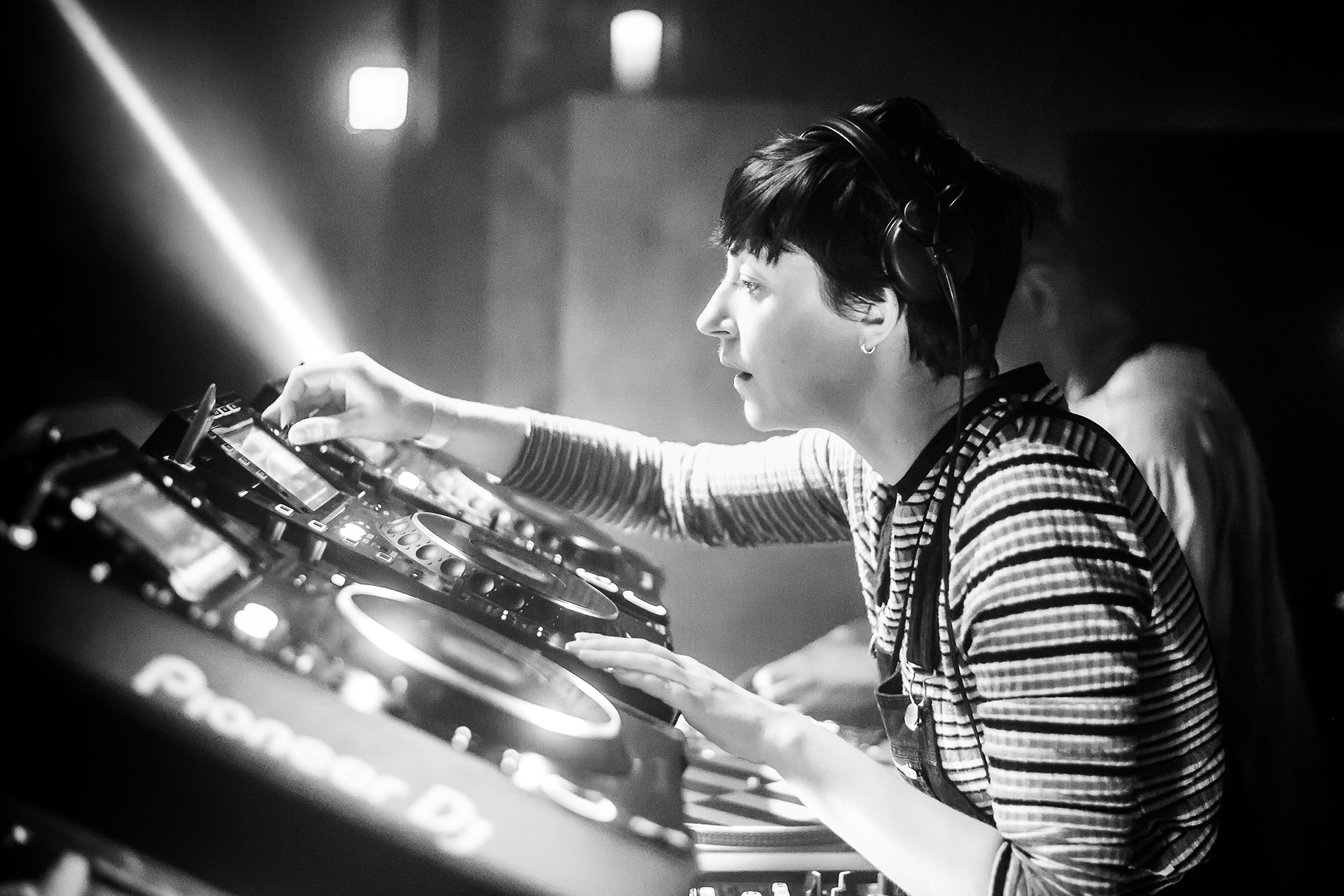
A blast of fog goes off as CCL weighs their options in visible concentration. Using words to describe their blends is almost a disservice; rhythms tumble with a natural but unexpected momentum, syncopations you never thought possible slowly become revealed. Over five and a half hours, they take us through a trance moment, sproingy percussion, acid techno, steel guitar-featuring dub, and some proper chuggers, carving out patterns that cause Mixmag to gasp audibly, multiple times.
By 6 AM, the sky is beginning to lighten and only a handful of ravers remain. Some are sprawled on the sofa burning incense and drinking Gatorade, others sleepily and/or fanatically plod around the dancefloor. CCL's energy has shifted to that of a contemplative wizard as they shoot off various transmissions into the morning hours: Charlotte Adigéry, Lurka, Janet Jackson, FKA twigs, Hugh Masekela, Koffee, a one-two punch of Andrew Weatherall remixes. When it's finally done and we step out into the freezing air, everyone is understandably drained and a bit speechless. We all arrange to go our separate ways home, but the warmth and community of the night lingers for several days after.
Nina Posner is a freelance writer, follow them on Twitter
Josh Sisk is a culture, music and the arts photographer, check his website
Read this next: Get the best of Mixmag direct to your Facebook DMs


